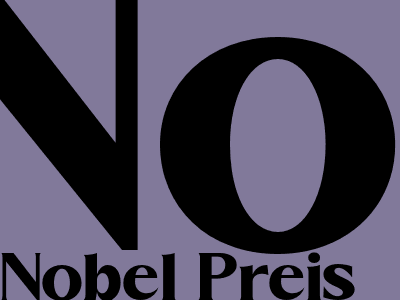How Nobel Prizes have Impacted the World
A Legacy of Innovation and Discovery
Since 1901, the Nobel Prize has recognized exceptional achievements in physics, chemistry, physiology or medicine, literature, and peace. These prestigious awards have not only honored brilliant individuals but have also profoundly impacted the world.From Marie Curie's groundbreaking work in radioactivity to Albert Einstein's revolutionary theory of relativity, Nobel laureates have pushed the boundaries of human knowledge and shaped our understanding of the universe.
Their discoveries and innovations have led to countless advancements in science, medicine, and technology, improving the lives of countless people worldwide.
Transformative Discoveries in Science and Medicine
Nobel Prizes in science have revolutionized our understanding of the natural world.
- In 1953, James Watson and Francis Crick received the Nobel Prize for discovering the structure of DNA, providing a foundation for modern genetics and biotechnology.
- The 2009 Nobel Prize in Physiology or Medicine recognized Elizabeth Blackburn, Carol Greider, and Jack Szostak for their work on telomeres, advancing our understanding of aging and cancer.
- In 2017, the Nobel Prize in Physics went to Rainer Weiss, Barry Barish, and Kip Thorne for their contributions to the detection of gravitational waves, opening new frontiers in astrophysics.
Inspiring Literary Achievements
The Nobel Prize in Literature celebrates exceptional works of fiction, poetry, and drama.
- In 1907, Rudyard Kipling became the first English-language writer to receive the Nobel Prize for his literary masterpieces, including "The Jungle Book" and "Kim."
- Ernest Hemingway won the Nobel Prize in 1954 for his powerful and concise writing style, exemplified by novels like "The Old Man and the Sea."
- Toni Morrison's groundbreaking work on the African-American experience earned her the Nobel Prize in 1993, recognizing her profound impact on literature and society.
Promoting Peace and Understanding
The Nobel Peace Prize honors individuals and organizations that have made significant contributions to world peace.
- In 1964, Martin Luther King Jr. received the Nobel Peace Prize for his nonviolent struggle for civil rights in the United States.
- The 2007 Nobel Peace Prize went to Al Gore and the Intergovernmental Panel on Climate Change for their efforts to raise awareness about global climate change.
- In 2018, Denis Mukwege and Nadia Murad shared the Nobel Peace Prize for their work to end the use of sexual violence as a weapon of war, highlighting the importance of human rights activism.
A Lasting Legacy
The Nobel Prize has left an indelible mark on the world, fostering scientific progress, inspiring literary brilliance, and promoting peace and understanding.
The laureates who have received this prestigious award continue to inspire generations to come, reminding us of the transformative power of human ingenuity and the pursuit of excellence.
As the Nobel Prize continues to recognize outstanding achievements, it will undoubtedly continue to play a vital role in shaping our world for the better, promoting human progress and enriching our collective knowledge and understanding.

Comments